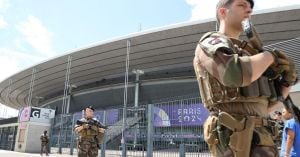Anwar Ibrahim's recent remarks on Israel's existence and defense have stirred significant debate and reaction within Malaysia, raising questions about the country's foreign policy stance on one of the most contentious geopolitical issues globally. During an interview with CNN, the Malaysian Prime Minister acknowledged Israel's right to exist and to defend itself, asserting, "yes, yes" when directly asked about these rights. This statement, made amid the backdrop of intense conflict and suffering, namely the deaths of over 50,000 Palestinians due to Israeli military actions, has incited criticism from various pro-Palestinian groups and opposition politicians.
The core of Anwar's interview included concerns about how Western media has provided a skewed narrative, often overlooking the historical and current injustices faced by Palestinians. He raised the notion of moral high ground, proposing, "If we have the international community take a moral high ground that's consistent, then I'd realise, 'yes we must stop the excesses'". This sentiment suggests his longing for international accountability, placing the Malaysian conversation within broader global criticisms of how the Palestinian plight is reported and understood.
Despite Anwar's insistence on recognizing Israel's rights, his position contradicts Malaysia's long-standing foreign policy approach, which has historically refrained from recognizing the nation as part of its official stance. Over 30 countries worldwide uphold similar policies, emphasizing support for Palestinian rights and denying diplomatic relations with Israel, viewed as occupying forces.
This shift has not gone unnoticed. Members of the opposition have vehemently criticized Anwar for his statements. Ahmad Fadhli Shaari, the information chief for PAS, implored him to retract his assertions, arguing, "in the current situation, [Israel] doesn't have any right to exist, totally, absolutely". His remarks echo sentiments among various Muslim leaders, reinforcing the stance of non-recognition.
The conflicting narratives about Israel's existence, especially amid perceived aggression and military actions, position Anwar's comments dangerously close to justifying actions taken by Israel against Palestinians, causing unease among local activists. During the questioning about Hamas' actions, Anwar indicated these were the result of continuous Israeli aggression, highlighting the complexity and the deep-seated issues at play.
Critics are quick to point out the dangers of his comments. Some have suggested Anwar's newfound stance risks his credibility among pro-Palestinian activists, especially after his government announced contracts with BlackRock, a corporation seen as supportive of Israeli interests. Despite protests, Anwar has stood firm, asserting the decision as part of broader economic strategies.
Meanwhile, Palestinian academics and activists worldwide have branded Anwar's acceptance of Israeli rights as problematic. Azzam Tamimi, for example, suggested alternative responses to the interview questions posed by CNN. He questioned whether Anwar was acknowledging the legitimacy of what he described as "a colonial entity built on land stolen from the people of Palestine". Such perspectives reflect deep frustrations over perceived complicity with Israel's state actions against Palestinians.
The dialogue surrounding Israel and Palestine remains complex and fraught with historical grievances. Malaysia's unique position — being predominantly Muslim and supportive of Palestine — adds layers to the narrative. The two-state solution was previously seen as a potential pathway to peace, allowing Muslim nations ways to engage with both Israel and Palestine without compromising their principles. Anwar's comments could signal possible shifts not only within Malaysia but also potentially greater regional discussions about foreign policy and engagements with Israel.
Yet the current violence, exemplified by Israeli military campaigns leading to vast civilian casualties, complicates any moves toward normalizing relationships. Activists and politicians alike are calling on the government to remain explicit about the stark realities faced by Palestinians today. The Boycott, Divestment, Sanctions (BDS) Movement, firmly opposing Israel’s actions, has called for solidarity with Palestinians, emphasizing their right to defense against decades of state violence.
Former MPs and activists have stressed Malaysia's role within this international discourse and urge Anwar to reinforce commitments to Palestinian support without ambiguity. Tian Chua, representing the Palestinian Solidarity Secretariat, rejected the idea of Israeli self-defense, asserting, "it's the Palestinians, not the Israelis, who have the right to defend themselves and be protected from oppression." These voices are key within Malaysia’s multi-faceted dialogue surrounding statehood and justice.
Whether Anwar's statements mark a transition toward increased diplomatic relations with Israel or reflect broader geopolitical pressures remains to be seen. His previous comments about supporting Israel's security complicate this view, prompting questions about whether Malaysia might be inching closer to normalization — something viewed negatively by many of his constituents and supporters.
International reactions to such announcements would likely vary, with possible approval from Western allies who favor engagement with Israel but could alienate traditional allies and grassroots supporters within the Muslim world, who might seek stricter adherence to solidarity with Palestine. The stakes are high; Anwar Ibrahim now finds himself at the intersection of international diplomacy and local expectations, tasked with balancing potential diplomatic openings against the deeply entrenched sympathies for Palestine within Malaysia.
No matter the outcome, Anwar's comments have undeniably sparked fresh debates, forcing many to reflect on Malaysia's longstanding foreign policy and how it aligns or diverges from the contemporary geopolitical realities. These discussions highlight the importance of transparent dialogue about sovereignty, justice, and the pursuit of peace, not only locally but across the global community. Anwar Ibrahim's commitments will put him to the test as he navigates through one of the most polarizing issues of our time, working to keep Malaysia’s voice clear and firm on the international stage.



